Ophthalmology is the branch of medicine and surgery that deals in the diagnosis, treatment and prevention of eye-disorders.
Below are some of the symptoms for which you might consider going for an Ophthalmology treatment:
| Country of Treatment | Cataract Surgery (cost in USD) | LASIK (cost in USD) |
| India | 2000 | 1000 |
| Turkey | 2900 | 1500 |
| Thailand | 3950 | 2600 |
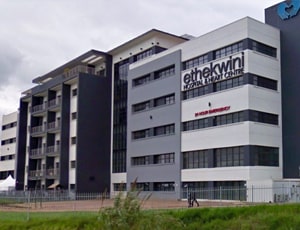
Apart from in-detail treatment procedures available, Lenmed Ethekwini Hospital and Heart Centre located in Durban, South Africa has a wide variety of facilities available for International Patients. Some of the facilities which are provided by them are Accommodation, Airport Transfer, Choice of Meals, Interpreter, SIM, TV inside room. Also listed below are some of the most prominent infrastructural details:
PROCEDURE
SPECIALITIES
FACILITIES & AMENITIES
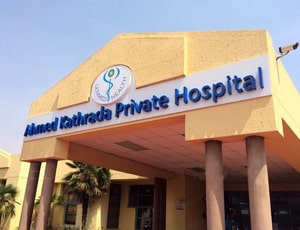
Apart from in-detail treatment procedures available, Lenmed Ahmed Kathrada Private Hospital located in Johannesburg, South Africa has a wide variety of facilities available for International Patients. Some of the facilities which are provided by them are Accommodation, Airport Transfer, Choice of Meals, Interpreter, SIM, TV inside room. Also listed below are some of the most prominent infrastructural details:
PROCEDURE
DOCTORS IN 9 SPECIALITIES
FACILITIES & AMENITIES
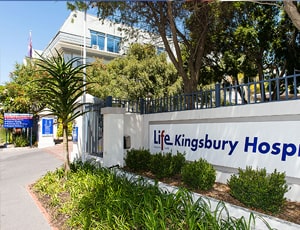
Apart from in-detail treatment procedures available, Life Kingsbury Hospital located in Cape Town, South Africa has a wide variety of facilities available for International Patients. Some of the facilities which are provided by them are Accommodation, Airport Transfer, Choice of Meals, Interpreter, SIM, TV inside room. Also listed below are some of the most prominent infrastructural details:
PROCEDURE
DOCTORS IN 12 SPECIALITIES
FACILITIES & AMENITIES

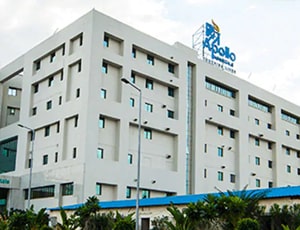
Apollo Hospital located in Chennai, India is accredited by JCI, NABH. Also listed below are some of the most prominent infrastructural details:
PROCEDURE
DOCTORS IN 13 SPECIALITIES
FACILITIES & AMENITIES
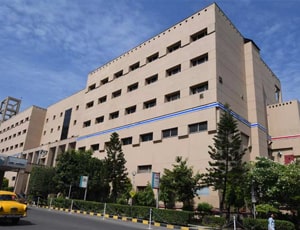
Apollo Multispecialty Hospitals located in Kolkata, India is accredited by JCI, NABH. Also listed below are some of the most prominent infrastructural details:
PROCEDURE
DOCTORS IN 13 SPECIALITIES
FACILITIES & AMENITIES
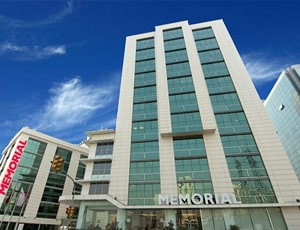
Memorial Atasehir Hospital located in Istanbul, Turkey is accredited by JCI. Also listed below are some of the most prominent infrastructural details:
PROCEDURE
DOCTORS IN 13 SPECIALITIES
FACILITIES & AMENITIES
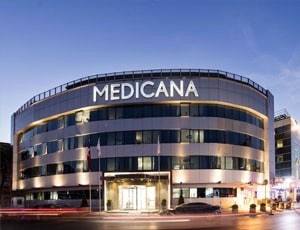
Medicana Bahcelievler Hospital located in Istanbul, Turkey is accredited by ISO, JCI. Also listed below are some of the most prominent infrastructural details:
PROCEDURE
DOCTORS IN 13 SPECIALITIES
FACILITIES & AMENITIES
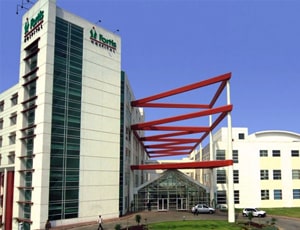
Fortis Hospital located in Noida, India is accredited by ISO, NABH. Also listed below are some of the most prominent infrastructural details:
PROCEDURE
DOCTORS IN 12 SPECIALITIES
FACILITIES & AMENITIES
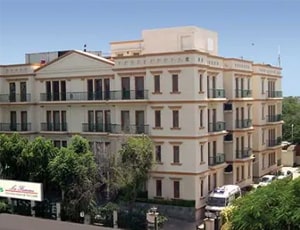
Fortis La Femme is a unique facility, which is inspired by the belief that a woman is a special person with all special needs. Their patient-sensitive services are offered in a world-class facility with an elegant ambience with value-added conveniences. The hospital has modern infrastructure which contributes to the delivery of effective treatment with ease and accuracy. It also has also modern facilities for international patients which makes it an excellent health care center in India.
PROCEDURE
DOCTORS IN 7 SPECIALITIES
FACILITIES & AMENITIES
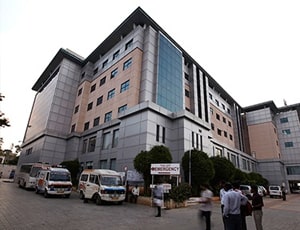
BGS Gleneagles Global Hospitals located in Bengaluru, India is accredited by NABH, NABL. Also listed below are some of the most prominent infrastructural details:
PROCEDURE
DOCTORS IN 14 SPECIALITIES
FACILITIES & AMENITIES

Indraprastha Apollo Hospital is known for delivering treatment to over 200,000 patients every year; 10,000 of which are generally medical tourists. The efficient team of doctors has the record of 99.6 percent success rate. Indraprastha Apollo Hospital deals in treatment of over 50 specialities.
Let’s see some of the features of the infrastructure:
PROCEDURE
DOCTORS IN 14 SPECIALITIES
FACILITIES & AMENITIES
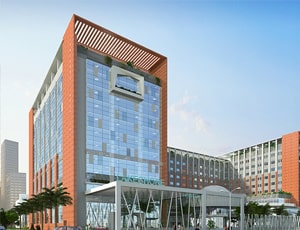
VPS Lakeshore Hospital located in Kochi, India is accredited by NABH. Also listed below are some of the most prominent infrastructural details:
PROCEDURE
DOCTORS IN 13 SPECIALITIES
FACILITIES & AMENITIES
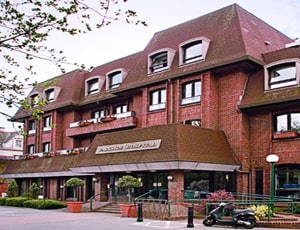
Apart from in-detail treatment procedures available, Parkside Private Hospital located in London, United Kingdom has a wide variety of facilities available for International Patients. Some of the facilities which are provided by them are Accommodation, Airport Transfer, Choice of Meals, Interpreter, SIM, TV inside room. Also listed below are some of the most prominent infrastructural details:
PROCEDURE
DOCTORS IN 12 SPECIALITIES
FACILITIES & AMENITIES
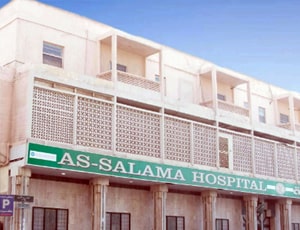
Apart from in-detail treatment procedures available, NMC As Salama Hospital located in Al Khobar, Saudi Arabia has a wide variety of facilities available for International Patients. Some of the facilities which are provided by them are Accommodation, Airport Transfer, Choice of Meals, Interpreter, SIM, TV inside room. Also listed below are some of the most prominent infrastructural details:
PROCEDURE
DOCTORS IN 11 SPECIALITIES
FACILITIES & AMENITIES
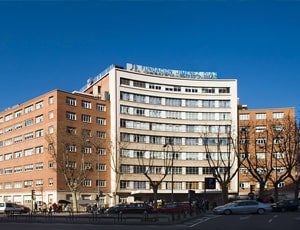
With about 80,000 m 2 , it is equipped with the highest sanitary technology and offers a wide portfolio of services-
PROCEDURE
SPECIALITIES
FACILITIES & AMENITIES
Ask your healthcare adviser for the best multiple options and choose the one that meets your expectations
The popular multispecialty hospital groups in South Africa are:
Joint Commission International (JCI) and Council for Health Service Accreditation of Southern Africa (COHSASA) are two healthcare accreditation bodies in South Africa. In order to ensure coordinated and integrated care is provided by healthcare facilities, COHSASA sets and assesses standards for all sectors and departments of a healthcare system. SafeCare program has been introduced by COHSASA, JCI, and SafeCare Foundation to use internationally recognized standards to improve health care delivery. The accreditation bodies ensure that the hospitals are consistent in delivering quality care, so, initially, they grant accreditation to hospitals and clinics only for 2 years which gets extended if the quality is maintained.
Affordable healthcare and superior infrastructure are the main reasons for the popularity of South Africa in the medical tourism sector. Some other factors which contribute to the growth of medical tourism in South Africa are use of cutting-edge technology, new facilities provided by hospitals, doctors trained overseas, and a large number of accredited hospitals. South Africa has also liberal laws for the application of stem cells in medical practice, making the country a leading destination for patients who need advanced medical treatment. The hospitals in South Africa strive to take the stress out of your medical holiday by helping you with all kinds of organization and administrative tasks, as well as provide all-inclusive care and assistance on a 24/7 basis.
The highly skilled and well-qualified doctors in South Africa ensure world-class treatment through their deep expertise and subject knowledge. Majority of doctors in South Africa have received rigorous training in countries like Cuba and Australia which makes them competent in dealing with even the most complicated cases with great ease. Using a holistic approach, doctors have received worldwide recognition for delivering excellent results in dental procedures and fertility treatments. Some important factors which contribute to the production of good quality doctors in the country are education at premier colleges, adherence to global standards, patient-centric approach, and incorporation of the human touch in treatment.
You can get a medical visa to South Africa for 90 days. The High Commission of the country decides for how long a visa could be extended. People must apply for a temporary residency permit if they require medical treatment for longer than three months. The validity of a visa starts the day it is granted by the High Commission and not on the date of departure. Also, visa applications will not be accepted more than 30 days prior to departure. You need to produce the below documents to apply for a medical visa:
A large number of people visit South Africa to avail procedures like anterior cruciate ligament (ACL) reconstruction, total knee replacement, meniscus repairs, and hip replacement. South Africa has also gained popularity for delivering excellent results in cosmetic surgery and infertility treatment. Fertility treatment through egg donation has seen a high success rate in South Africa wherein a person can opt for a surgical or non-surgical procedure, with quite low waiting times. The reasons for the popularity of these procedures are affordable treatment cost, speedy recovery, use of advanced technology, and highly trained doctors.
Some popular cities of South Africa that attract a huge number of medical tourists every year are Cape Town, Johannesburg, Pretoria, and Durban. Cape Town a major tourist attraction that has a rich culture, world-class doctors, and modern health facilities. The reasons for the popularity of these cities are multiple food options, connectivity through airlines, and cheap accommodation. Johannesburg’s public and private healthcare industry coordinates with South Africa's medical schools to create internationally recognized medical specialists and the quality of medical care is on par with Great Britain.
Yes, vaccination is mandatory before you travel to South Africa. Some of the vaccines recommended by WHO and the National Travel Health Network and Centre are Yellow fever, hepatitis A, rabies and tetanus, hepatitis B, typhoid, cholera. Infants of 6 to 11 months old are at greater risk of contracting measles, so they must get MMR vaccine before travelling to South Africa. Typhoid vaccine is recommended for most travellers, especially those staying with friends or relatives or visiting smaller cities or rural areas. You need to keep yourself updated with vaccination guidelines issued by the government. Also, check with the doctor, the government authority, or hospitals in South Africa as to what vaccination should be taken.
Joint Commission International (JCI) and Council for Health Service Accreditation of Southern Africa (COHSASA) are two healthcare accreditation bodies in South Africa. In order to ensure coordinated and integrated care is provided by healthcare facilities, COHSASA sets and assesses standards for all sectors and departments of a healthcare system. SafeCare program has been introduced by COHSASA, JCI, and SafeCare Foundation to use internationally recognized standards to improve health care delivery. The accreditation bodies ensure that the hospitals are consistent in delivering quality care, so, initially, they grant accreditation to hospitals and clinics only for 2 years which gets extended if the quality is maintained.
The highly skilled and well-qualified doctors in South Africa ensure world-class treatment through their deep expertise and subject knowledge. Majority of doctors in South Africa have received rigorous training in countries like Cuba and Australia which makes them competent in dealing with even the most complicated cases with great ease. Using a holistic approach, doctors have received worldwide recognition for delivering excellent results in dental procedures and fertility treatments. Some important factors which contribute to the production of good quality doctors in the country are education at premier colleges, adherence to global standards, patient-centric approach, and incorporation of the human touch in treatment.
A large number of people visit South Africa to avail procedures like anterior cruciate ligament (ACL) reconstruction, total knee replacement, meniscus repairs, and hip replacement. South Africa has also gained popularity for delivering excellent results in cosmetic surgery and infertility treatment. Fertility treatment through egg donation has seen a high success rate in South Africa wherein a person can opt for a surgical or non-surgical procedure, with quite low waiting times. The reasons for the popularity of these procedures are affordable treatment cost, speedy recovery, use of advanced technology, and highly trained doctors.
Yes, vaccination is mandatory before you travel to South Africa. Some of the vaccines recommended by WHO and the National Travel Health Network and Centre are Yellow fever, hepatitis A, rabies and tetanus, hepatitis B, typhoid, cholera. Infants of 6 to 11 months old are at greater risk of contracting measles, so they must get MMR vaccine before travelling to South Africa. Typhoid vaccine is recommended for most travellers, especially those staying with friends or relatives or visiting smaller cities or rural areas. You need to keep yourself updated with vaccination guidelines issued by the government. Also, check with the doctor, the government authority, or hospitals in South Africa as to what vaccination should be taken.
Joint Commission International (JCI) and Council for Health Service Accreditation of Southern Africa (COHSASA) are two healthcare accreditation bodies in South Africa. In order to ensure coordinated and integrated care is provided by healthcare facilities, COHSASA sets and assesses standards for all sectors and departments of a healthcare system. SafeCare program has been introduced by COHSASA, JCI, and SafeCare Foundation to use internationally recognized standards to improve health care delivery. The accreditation bodies ensure that the hospitals are consistent in delivering quality care, so, initially, they grant accreditation to hospitals and clinics only for 2 years which gets extended if the quality is maintained.
The highly skilled and well-qualified doctors in South Africa ensure world-class treatment through their deep expertise and subject knowledge. Majority of doctors in South Africa have received rigorous training in countries like Cuba and Australia which makes them competent in dealing with even the most complicated cases with great ease. Using a holistic approach, doctors have received worldwide recognition for delivering excellent results in dental procedures and fertility treatments. Some important factors which contribute to the production of good quality doctors in the country are education at premier colleges, adherence to global standards, patient-centric approach, and incorporation of the human touch in treatment.
A large number of people visit South Africa to avail procedures like anterior cruciate ligament (ACL) reconstruction, total knee replacement, meniscus repairs, and hip replacement. South Africa has also gained popularity for delivering excellent results in cosmetic surgery and infertility treatment. Fertility treatment through egg donation has seen a high success rate in South Africa wherein a person can opt for a surgical or non-surgical procedure, with quite low waiting times. The reasons for the popularity of these procedures are affordable treatment cost, speedy recovery, use of advanced technology, and highly trained doctors.
Yes, vaccination is mandatory before you travel to South Africa. Some of the vaccines recommended by WHO and the National Travel Health Network and Centre are Yellow fever, hepatitis A, rabies and tetanus, hepatitis B, typhoid, cholera. Infants of 6 to 11 months old are at greater risk of contracting measles, so they must get MMR vaccine before travelling to South Africa. Typhoid vaccine is recommended for most travellers, especially those staying with friends or relatives or visiting smaller cities or rural areas. You need to keep yourself updated with vaccination guidelines issued by the government. Also, check with the doctor, the government authority, or hospitals in South Africa as to what vaccination should be taken.